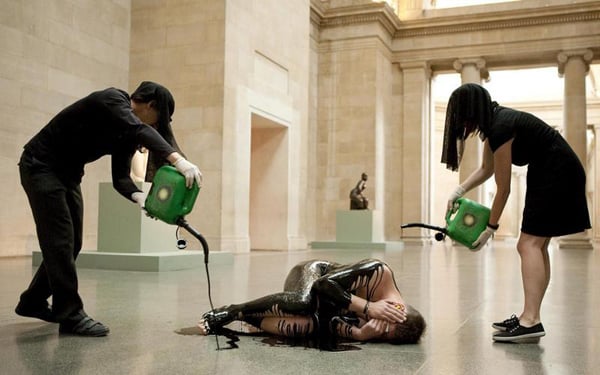
In the coming weeks, a tribunal will decide whether or not Tate will have to reveal the details of its corporate sponsorship deals with BP, reports the Guardian. For the last three years, environmental activists have led a campaign to publicize the extent of the oil company’s support of the museum, with artist collective and activist group Liberate Tate acting as a key member of the fight (see “Liberate Tate Plans Mass Protest Over BP Sponsorship“).
In March, the UK’s information commissioner ruled that the museum was obligated to share information about its meetings with BP. Tate appealed, claiming exemption from the Freedom of Information Act. Should the tribunal rule against the museum, redacted minutes from meetings of Tate’s ethics committee will be revealed, along with BP’s annual contributions to the institution dating back to 1990.
Though no one is accusing BP of controlling Tate’s curatorial programming, many are still concerned over the potentially subversive nature of corporate sponsorship. “If you spend night after night entertaining corporates, you learn their language,” playwright Mark Ravenhill, who attended a workshop about the environmental impacts of energy companies at the Royal Court Theatre earlier this year, told the Guardian. “I think there are very few examples of direct intervention—it’s not like you send them a script and see if they like it. But it changes the culture. It’s more gradual than censorship.”
“I think we often roll philanthropy and sponsorship into one,” he added. “But there’s a big difference between big corporate sponsors and trusts, foundations, and super-rich individuals who may have a love of the arts. Essentially, their sponsorship is an aspect of their PR. They want you to enhance their brand. Are you prepared to do that? Is it the only way to get funding? Is there any corporate money you wouldn’t take? We’ve been in this world since the 1980s, and there’s never been a serious discussion about the ethics.”
As per an official statement from the museum, “Tate does not disclose sponsorship values where they are a confidential element of individual agreements.”